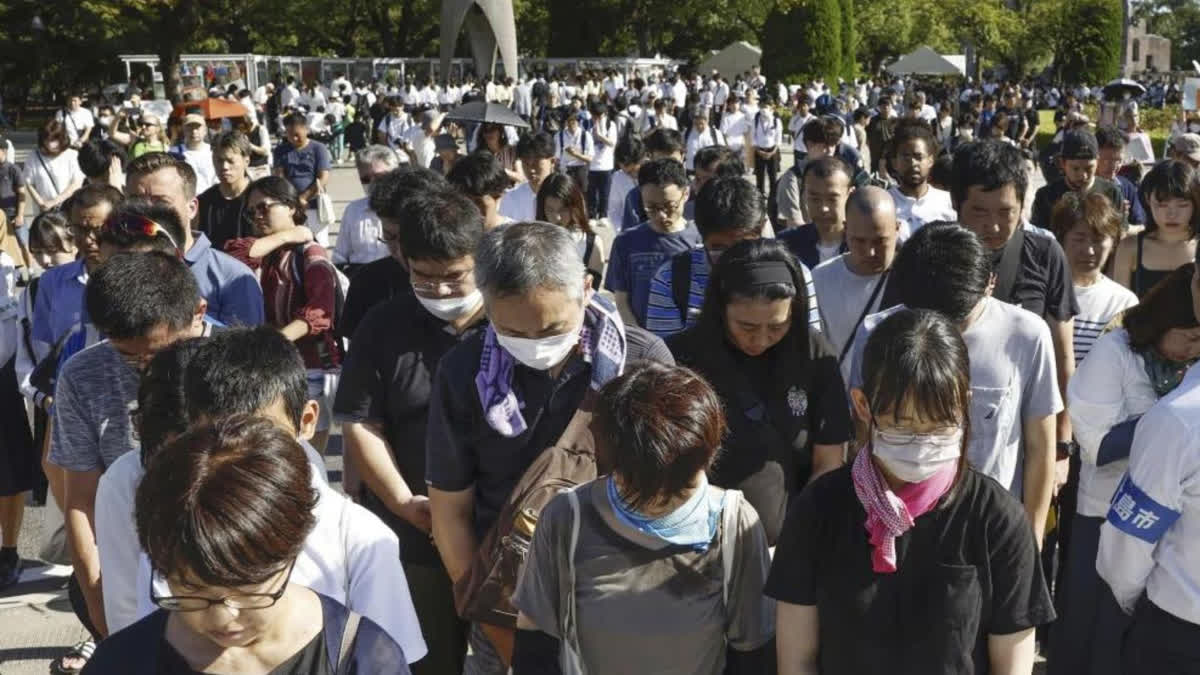Tokyo (Japan) : Hiroshima officials criticised growing support for nuclear weapons as a deterrent resulting from uneasiness over Russia's war in Ukraine and tensions in the Koreas, commenting Sunday as the city remembered the atomic bombing of 78 years ago. The observance came two months after Hiroshima hosted a summit of the Group of 7 major industrial nations, at which G7 leaders visited the city's peace park and a museum dedicated to those who died in the word's first atomic attack.
The leaders issued a joint statement calling for the continued non-use of nuclear weapons, but they also justified having such arms to serve defensive purposes, deter aggression and prevent war and coercion. Hiroshima Mayor Kazumi Matsui rejected that position in his peace address at the commemoration.
Leaders around the world must confront the reality that nuclear threats now being voiced by certain policymakers reveal the folly of nuclear deterrence theory, he said. They must immediately take concrete steps to lead us from the dangerous present toward our ideal world. Hiroshima Gov. Hidehiko Yuzai questioned the growing calls for reinforced nuclear deterrence around the world, including in Japan, since Russia invaded Ukraine and warned of possible nuclear weapons use, while North Korea advances its missile and nuclear development.
Believers of proactive nuclear deterrence, who say nuclear weapons are indispensable to maintain peace, are only delaying the progress toward nuclear disarmament, Yuzai said. The atomic bomb dropped by the United States on Hiroshima on Aug. 6, 1945, destroyed the city, killing 140,000 people, and a second bomb dropped three days later on Nagasaki killed an additional 70,000. Japan surrendered on Aug. 15, ending World War II and Japan's nearly half century of aggression in Asia.
Prime Minister Fumio Kishida, who represents Hiroshima in parliament, has sought to highlight the G7 commitment to nuclear disarmament and a condemnation of Russia's threats to use atomic weapons. But he has been faulted by survivors for refusing to sign the Treaty on the Prohibition of Nuclear Weapon.
